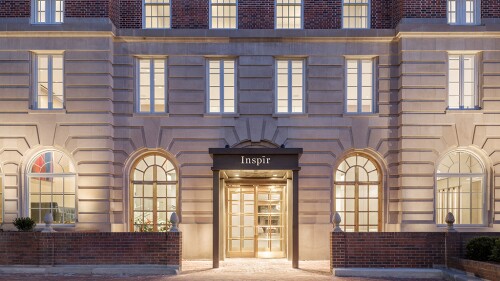Urban Land’s global readership might well look at this issue’s cover package, which focuses on land use examples in the Dallas/Fort Worth, Texas, area, and wonder what’s in it for them. The answer is plenty—if you are interested in how an international airport is turning into an off-site headquarters for global executives, or in reclaiming old industrial land, creating property value through parks and trails, revitalizing a downtown, or developing in the suburbs. Throw in some arts in the park and a novel way to hatch trendy new restaurants, and you have our package of articles on Dallas, a prelude to what members will find when they travel to ULI’s Fall Meetingthere in mid-October.
In particular, I was struck by Kevin Brass’s story about a $900 million–plus plan to create more developable land in Fort Worth by rerouting the Trinity River. Part flood control effort and part urban development, the plan is a massive undertaking requiring the cooperation—and financial support—of private and public entities, including the local, state, and federal governments. Take a look at the site plans in the article that begins on page 100 and see if they don’t resemble the map of Venice, Italy. It’s exciting to imagine what this community could become once a river runs through it.
This issue also affords the opportunity to learn from a distinguished global investor, ULI’s new Asia Pacific Chairman N.H. Seek. He is chairman of the Institute of Real Estate at the National University of Singapore and of Global Logistics Properties in Singapore. Seek also spent 15 years leading the real estate investment arm of Singapore’s Government Investment Corporation. His insights about the hunt for yield begin on page 168.
The name Johann Sebastian Bach makes a rare appearance in Urban Land, thanks to developer Jonathan F.P. Rose, whose new book uses metaphors about Bach’s music to explain how many interests can achieve harmony in a well-done city. We are happy to present an excerpt from his new book, The Well-Tempered City: What Modern Science, Ancient Civilizations, and Human Nature Teach Us about the Future of Urban Life. It begins on page 179. He will be speaking on his book at the Fall Meeting.
And finally, this issue presents a photo essay that hits very close to home: the unveiling of ULI’s new Global Headquarters in Washington, D.C. It’s a smart, chic design from the D.C. office of Studios Architecture, built with every bit as much attention to being a welcoming place for ULI members to meet, hold functions—and even just drop by for a cup of coffee—as to accommodating daily work routines. Enjoy the photographic tour that begins on page 52, and then stop by to see it for yourself the next time you visit Washington. UL





